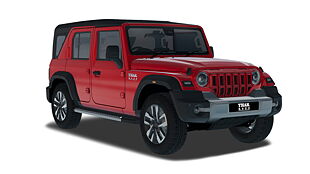Introduction

Everyone is looking for a little extra value for the money they spend, but in India, especially with cars, this need for extra is on a different tangent. We want extra features, more space, good looks, ‘little more’ efficiency and all of it put together for a price that will leave us with extra dough.
While there is nothing wrong in expecting all of it, most carmakers struggle to get that balance between the price and ‘more’. One of the newest entrants in the Indian market, Datsun, has decided to use a completely different approach with their new product, the GO+. It definitely offers value, but not in every department, instead it just tries to cover the basics so that ‘more’ can come at a more convenient time.

Looks

The GO+ for most part looks exactly like the hatchback. Like the name, there is an addition at the back and it is now longer and almost four metre in length. But it is a good looking car, especially in this golden colour.
The contemporary front with the small hexagonal grille looks pretty. From the front there is no way of distinguishing the GO+ from the GO hatchback; everything including the bumper, headlamp console and creases on the bonnet are identical. A view of the front three quarter gives an idea of the excess length and only when looked at from the side angle, the difference in size is clearly noticeable.

Datsun may have positioned it as an entry-level MVP, but it is more of an estate car than a UV. It isn’t tall and still has the wheelbase of the hatchback. The best part is that the section behind the C pillar is cleverly masked to make it look proportional. This is without doubt the most proportionate and good looking innovation – neither the compact sedans nor SUVs have managed to look this good.
The rear has been changed and as expected, looks bigger than that of the hatchback. The tail lamp console is more shapely, the bumper looks nice with the minimal badging working in the favour of the car. Not many features to talk about though, no alloy-wheels even on the top-end, the ORVMs are black and the tyres are anorexic beyond comprehension (can be upgraded as dealer fitment). I am sure, at least a few will not be happy about the GO+ looking like its younger sibling, but it will certainly help Datsun in getting the brand recognition.

The GO+ is not the first in the B segment to try and accommodate seven people, the Suzuki Ecco and Omni have been doing it for a while. However, the Datsun’s sub-compact MVP is the first good looking car to try and manage it.
Interior

The cabin is roomy, but not like what one would expect from an MPV. The first two rows have decent amount of space, but the third row is at best for children under 10 years. The ingress to the third row also involves some effort; the backrest of the middle row comes down and then the entire bench folds and tumbles creating a way to the back. Fortunately the floor height isn’t much, so getting in isn’t difficult. This space can be put to better use by folding the third row and liberating 347 litres of space, which is not only usable but also easily accessible. Not many will use the rear bench for seating passengers in the cities, but in the rural markets we have seen even the Suzuki Omni being used as an eight seater.

We didn’t expect too many features and so were not surprised to see a very basic cabin. It is again exactly similat to that of the GO hatchback, with light grey and beige interior colour. Everything here is made to a strict budget, the music system is basically a phone dock with AUX input for the speakers and USB port for charging. No driver height adjustment, no adjustable steering, no power windows for the second row and even the monochromatic cabin mirror (day/night mirror!) is missing.

There are enough cubby holes to stow away everything from a wallet, phone to one litre water bottles, but the glove box does not get a cover so keeping anything important in the car is going to be tedious. Datsun has retained the extended co-driver seat that creates sort of a front bench; like last time I will cry about it being a safety hazard if someone seats a child there, but if used smartly that is a lot of usable space to keep things handy.

I will not deduct points for missing features, Datsun has made it clear right from the start that they are looking to build value for money products. If people are looking for more features, there is always a way of adding them as accessories. What bothers me though is the lack of safety features, Datsun choose to omit airbags and ABS completely, and these are not even part of the options list for additional money. There are arguments that people in India are not bothered about safety, but by completely omitting them, Datsun is keeping away a certain set of buyers.
Performance

The GO+ is just 39 kg heavier than the hatchback and with the same 1.2-litre three-cylinder engine, the performance is absolutely delightful. The car produces 67bhp and 104Nm of torque; that is actually not much, however the ECU has been tuned to provide ample bottom end torque and that really works in its favour. The bottom end performance with light load is almost like the diesel, step on the throttle and no matter what rpm, the car will respond instantly. This is without doubt one of the best petrol engines in terms of practicality among all the compact cars.
The five-speed gearbox has short throws, but feels very notchy – especially while shifting between second and third gear. Also in an attempt of keeping the costs in check, there has been some compromise on the NVH levels. A lot of noise percolates into the cabin and it gets disturbing past the 80kph mark. The ARAI efficiency of 20.62kpl is acceptable, on our short drive on the narrow roads we managed over 15kpl.

Ride & Handling

The ride felt a little firm, but that is probably because there was hardly any load in the car. With five passengers and luggage, it will certainly become more comfortable. The ground clearance at 170mm is good enough to tackle any sort of potholes and speed breakers on the Indian roads. It manages to clear them without too much fuss, just that the thuds do creep into the cabin.
The steering wheel is one of the best in the segment, it is not too light and provides decent amount of feedback. Considering this is a budget vehicle the handling of the GO+ is excellent. It holds its lines pretty well and the puny 155/70 R13 Strada tyres provide decent grip. The braking power though is an issue; there is feedback but the stopping power could certainly have been better and this is where bigger tyres will help.
Although the GO+ is not intended to be a fun to drive car, Datsun has managed to build a package that is much better than most cars in the B Segment. The engine is responsive, ride quality is nice, steering feedback is brilliant and it manages to make twisty roads a lot of fun.

Verdict

The review may look a little critical at various junctures, but the bigger picture is actually positive. It is a good looking car, is spacious for five people and lot of luggage and has a superb engine powering it. All of this starts looking even better, when the price is brought into the picture. The top-end is expected to cost less than Rs 4.5 lakh (ex-showroom) and that is incredible value.
Agreed there are no features, but Datsun’s strategy is pretty solid. Things like bigger tyres, alloys, music system, leather seats can always be bought at a future date, but getting extra space from the same car at a later date is not possible. The GO+ doesn’t please in every department; it looks at doing the primary task in the most efficient way possible and manages to do that successfully.
However, there is still one major flaw, the car lacks ABS and airbags, which I believe are of paramount importance on the Indian roads. But for this, the GO+ is without doubt one of the most practical and affordable cars in the Indian market.

![Datsun GO Plus [2015-2018] Right Rear Three Quarter Datsun GO Plus [2015-2018] Right Rear Three Quarter](https://imgd.aeplcdn.com/642x361/ec/26/31/17065/img/m/Datsun-Go-Plus-Right-Rear-Three-Quarter-44971_ol.jpg?v=201711021421&q=80)
![Datsun GO Plus [2015-2018] Right Rear Three Quarter Datsun GO Plus [2015-2018] Right Rear Three Quarter](https://imgd.aeplcdn.com/642x361/ec/26/31/17065/img/ol/Datsun-Go-Plus-Right-Rear-Three-Quarter-44974.jpg?v=201711021421&q=80)
![Datsun GO Plus [2015-2018] Left Rear Three Quarter Datsun GO Plus [2015-2018] Left Rear Three Quarter](https://imgd.aeplcdn.com/642x361/ec/26/31/17065/img/ol/Datsun-Go-Plus-left-rear-three-quarter-44975.jpg?v=201711021421&q=80)
![Datsun GO Plus [2015-2018] Left Front Three Quarter Datsun GO Plus [2015-2018] Left Front Three Quarter](https://imgd.aeplcdn.com/642x361/ec/26/31/17065/img/ol/Datsun-Go-Plus-Left-Front-Three-Quarter-44972.jpg?v=201711021421&q=80)
![Datsun GO Plus [2015-2018] Front View Datsun GO Plus [2015-2018] Front View](https://imgd.aeplcdn.com/642x361/ec/26/31/17065/img/ol/Datsun-Go-Plus-Front-view-44976.jpg?v=201711021421&q=80)
![Datsun GO Plus [2015-2018] Dashboard Datsun GO Plus [2015-2018] Dashboard](https://imgd.aeplcdn.com/642x361/ec/26/31/17065/img/ol/Datsun-Go-Plus-Dashboard-44986.jpg?v=201711021421&q=80)
![Datsun GO Plus [2015-2018] Dashboard Datsun GO Plus [2015-2018] Dashboard](https://imgd.aeplcdn.com/642x361/ec/26/31/17065/img/ol/Datsun-Go-Plus-Dashboard-44985.jpg?v=201711021421&q=80)
![Datsun GO Plus [2015-2018] Steering Wheel Datsun GO Plus [2015-2018] Steering Wheel](https://imgd.aeplcdn.com/642x361/ec/26/31/17065/img/ol/Datsun-Go-Plus-Steering-Wheel-44995.jpg?v=201711021421&q=80)
![Datsun GO Plus [2015-2018] Image Datsun GO Plus [2015-2018] Image](https://imgd.aeplcdn.com/272x153/cw/ec/11240/Datsun-GO-Plus-Exterior-119167.jpg?wm=0&q=80)





















